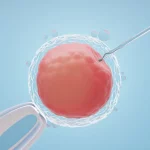
Introduction
In the evolving landscape of reproductive technology, frozen embryos have become a focal point of ethical, legal, and emotional debates. As in vitro fertilization (IVF) becomes more prevalent, questions surrounding the moral status of embryos, religious perspectives, and psychological impacts on prospective parents have gained prominence. This comprehensive guide explores these multifaceted issues, drawing insights from experts across disciplines.
IVF and Embryo Cryopreservation: Current Practices
In vitro fertilization (IVF) has become a prevalent assisted reproductive technology (ART) in the United States. According to the CDC, in 2021, approximately 2.3% of all infants born in the U.S. were conceived using ART. Embryo cryopreservation, the process of freezing embryos for future use, is integral to IVF protocols. In 2021, 167,689 ART cycles involved egg or embryo banking, accounting for nearly 41% of all ART cycles.
The utilization of frozen embryos has increased over time. From 2004 to 2013, the number of embryos cryopreserved annually in the U.S. rose from 158,383 to 303,203. This trend reflects advancements in cryopreservation techniques and the strategic use of frozen embryos to enhance IVF outcomes.
Clinical Outcomes and Success Rates
The success of IVF procedures varies based on multiple factors, including patient age and embryo quality. Data from the CDC indicate that in 2021, ART procedures resulted in 91,906 live births and 97,128 live-born infants. The use of frozen embryos has contributed to these outcomes, with studies showing comparable success rates between frozen and fresh embryo transfers.
Furthermore, the practice of single embryo transfer (SET) has become more common, reducing the incidence of multiple births and associated risks. In 2022, approximately 96% of babies born from IVF-assisted pregnancies were singletons, compared to 80% in 2015.
Ethical and Dispositional Considerations
The disposition of unused frozen embryos presents ethical considerations for patients and clinicians. Options for unused embryos include:
- Continued Storage: Maintaining embryos in cryopreservation for future use.
- Donation to Other Individuals or Couples: Providing embryos to others seeking to conceive.
- Donation for Research Purposes: Contributing embryos to scientific studies.
- Disposal: Thawing and discarding embryos.
The ASRM emphasizes the importance of informed consent and clear policies regarding embryo disposition. Clinics are advised to obtain written directives from patients at the time of embryo freezing and to revisit these decisions periodically.
Unclaimed embryos pose additional challenges. Between 2004 and 2013, approximately 1.2 million embryos remained in storage in the U.S., with their status—whether intended for future use, donation, or disposal—uncertain.
Regulatory Framework
In the United States, the FDA regulates aspects of ART, focusing on the safety and efficacy of procedures. However, regulations concerning the legal status and disposition of embryos vary by state, leading to inconsistencies in policies and protections. Patients and providers need to be aware of the legal context within their jurisdiction.
Conclusion
The use of frozen embryos in IVF encompasses clinical efficacy, ethical considerations, and regulatory complexities. As the prevalence of ART continues to rise, it is imperative for healthcare providers to offer comprehensive counseling and for patients to make informed decisions aligned with their values and circumstances. Ongoing dialogue and adherence to established guidelines will ensure ethical integrity and optimal outcomes in reproductive medicine.
Note: This article is intended for informational purposes and does not substitute professional medical or legal advice. Always consult with qualified professionals when making decisions.

Dr. Veera Saghar
As an Egg Donor Coordinator, she plays a critical role in our company. Her background as a medical graduate from ISRA UNIVERSITY in Pakistan provides us with a solid foundation in the medical sciences. She has seven years of clinical experience practicing in the USA. This has given her firsthand experience when collaborating with patients and their families.
She is responsible for managing the process of egg donation from start to finish. We identify and screen potential egg donors.





